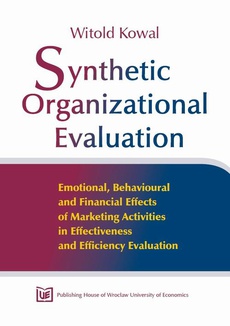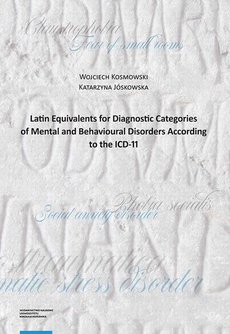
Synthetic organizational evaluation Emotional, behavioural and financial effects of marketing activities in effectiveness and efficiency evaluation
Autor:
Format:
ibuk
In their broadest definition, economic sciences, which include economics and management, study the behaviour of market participants. As it is this behaviour that ultimately creates economic results, it makes eminent scientific sense to understand it. Yet despite multiple studies in this field we cannot predict all economic phenomena, which is evidenced by recurrent crises (affecting both the overall economy and individual firms). It appears that human behaviour in an economic context has, as of yet, been insufficiently researched. Economic choices are accompanied by mental states which are increasingly often addressed by economic theory. Our poor ability to predict economic phenomena might stem from the fact that human mental states have not been adequately described. In the existing body of theory, human economic behaviour is viewed as automatic, with linear relationships between stimulus and reaction, while in fact human responses are underpinned by subjective interpretations (judgements). The distinguishing trait of humans is that we judge our environment, including the organizations we are part of, their results, and the activities occurring within them. It has been generally recognized that categories based on the concepts of efficiency and effectiveness are the principal criteria of evaluation (judgement) in economic sciences. The interpretation of effectiveness and efficiency is often subjective, as it is made in the context of the utility of various theoretical concepts, of diverse ways of perceiving a firm’s goals. The problems indicated above are not new to economic sciences. A subjective approach was the distinctive feature of the so-called ‘psychological’ (Austrian) school of economics. The interpretation of the concepts of effectiveness and efficiency has a long tradition too. It may be reasonable to approach the problem of the economic evaluation of a firm (including effectiveness and efficiency assessment) from a slightly different perspective.
| Rok wydania | 2015 |
|---|---|
| Liczba stron | 192 |
| Kategoria | Publikacje darmowe |
| Wydawca | Wydawnictwo Uniwersytetu Ekonomicznego we Wrocławiu |
| ISBN-13 | 978-83-7695-503-2 |
| Numer wydania | 1 |
| Język publikacji | angielski |
| Informacja o sprzedawcy | ePWN sp. z o.o. |
POLECAMY
Ciekawe propozycje
The Language-Cognition Interface in...
do koszyka
The Emotional Brain Revisited
do koszyka
And Still I Cheat the Gallows
do koszyka
And the winner is...Model...
do koszyka
And Vice Versa
do koszyka
Spis treści
| Introduction | 7 |
| Chapter 1. Effectiveness and efficiency as criteria of economic evaluations | 13 |
| 1.1. Complementary approach to the interpretation of efficiency and effectiveness | 14 |
| 1.2. Efficiency as the focus of interest of economic sciences | 26 |
| 1.3. Development of the interpretation of organizational effectiveness | 36 |
| 1.4. Other examples of the interpretation of effectiveness in management sciences | 51 |
| 1.5. Organizational efficiency and effectiveness – an attempt at a synthetic evaluation of the existing body of research | 55 |
| Chapter 2. Marketing and financial effects of a business organization and an evaluation of organizational effectiveness and efficiency | 62 |
| 2.1. Variability of organizational goals | 63 |
| 2.2. Development of marketing concepts | 68 |
| 2.3. Key outcomes of marketing activities | 85 |
| 2.4. Diversification of measurements of marketing and financial outcomes of a firm | 101 |
| Chapter 3. Empirical verification of variability of evaluations of an organisation | 110 |
| 3.1. Objectives of the research project | 110 |
| 3.2. General results of the survey 3.3. Impact of perceived significance of efficiency and effectiveness on variability of SOE | 128 |
| 3.4. Variability of SOE vs. respondent roles | 132 |
| 3.5. Variability of SOE – conceptual approach | 145 |
| Summary | 158 |
| Appendices 1-5 | 162 |
| Selected Bibliography | 177 |
| List of Figures | 188 |
| List of Tables | 189 |


























